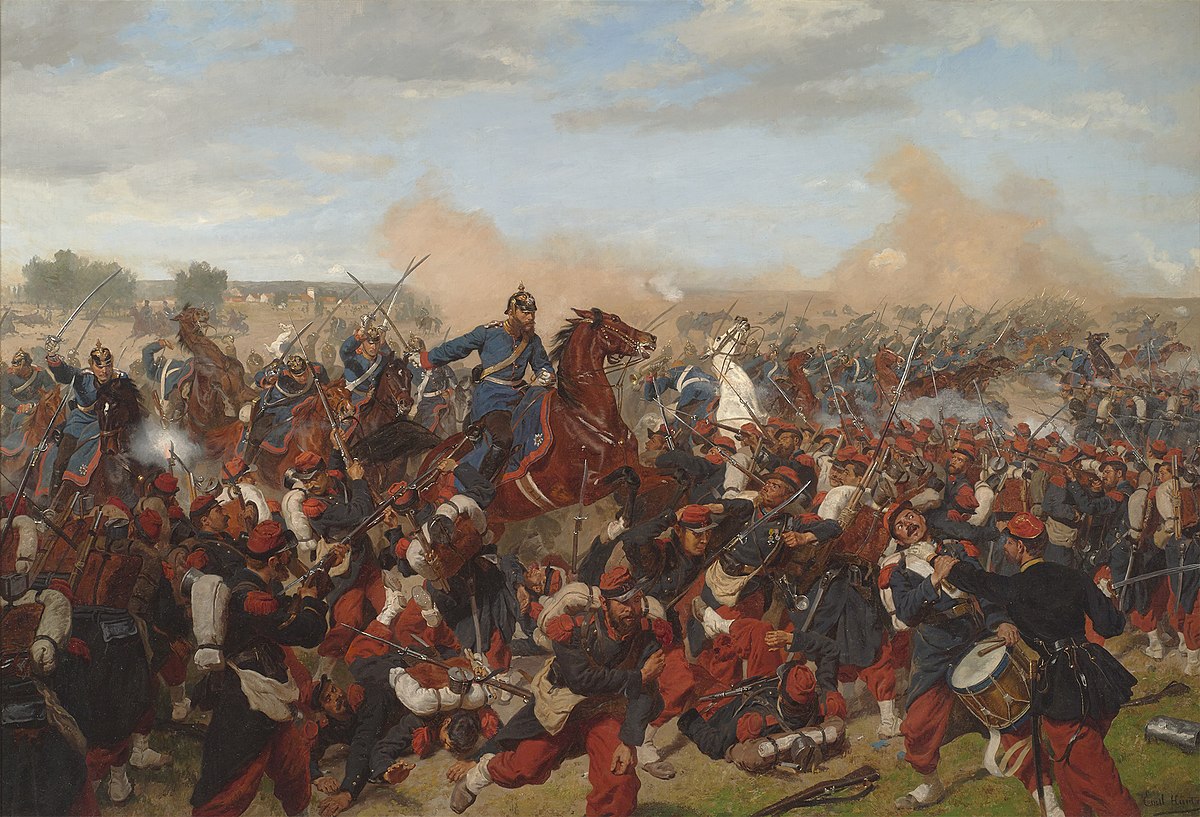
Franco-Prussian War
FranceThe Franco-Prussian War was a conflict between the Second French Empire and the North German Confederation led by the Kingdom of Prussia. The conflict was caused primarily by France's determination to reassert its dominant position in continental Europe, which appeared in question following the decisive Prussian victory over Austria in 1866. According to some historians, Prussian chancellor Otto von Bismarck deliberately provoked the French into declaring war on Prussia in order to induce four independent southern German states—Baden, Württemberg, Bavaria and Hesse-Darmstadt—to join the North German Confederation; other historians contend that Bismarck exploited the circumstances as they unfolded. All agree that Bismarck recognized the potential for new German alliances, given the situation as a whole.
France mobilised its army on 15 July 1870, leading the North German Confederation to respond with its own mobilisation later that day. On 16 July 1870, the French parliament voted to declare war on Prussia; France invaded German territory on 2 August. The German coalition mobilised its troops much more effectively than the French and invaded northeastern France on 4 August. German forces were superior in numbers, training, and leadership and made more effective use of modern technology, particularly railways and artillery.
A series of swift Prussian and German victories in eastern France, culminating in the Siege of Metz and the Battle of Sedan, resulted in the capture of the French Emperor Napoleon III and the decisive defeat of the army of the Second Empire; a Government of National Defense was formed in Paris on 4 September and continued the war for another five months. German forces fought and defeated new French armies in northern France, then besieged Paris for over four months before it fell on 28 January 1871, effectively ending the war.
Following an armistice with France, the Treaty of Frankfurt was signed on 10 May 1871, giving Germany billions of francs in war indemnity, as well as most of Alsace and parts of Lorraine, which became the Imperial Territory of Alsace-Lorraine (Reichsland Elsaß-Lothringen).
The war had a lasting impact on Europe. By hastening German unification, the war significantly altered the balance of power on the continent; with the new German nation state supplanting France as the dominant European land power. Bismarck maintained great authority in international affairs for two decades, developing a reputation for adept and pragmatic diplomacy that raised Germany's global stature and influence.
